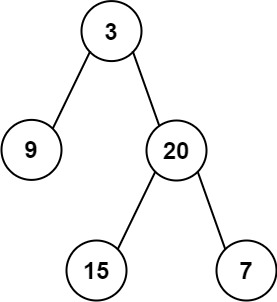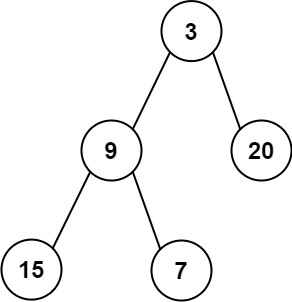0637 - Average of Levels in Binary Tree
problem
Given the root of a binary tree, return the average value of the nodes on each level in the form of an array. Answers within 10-5 of the actual answer will be accepted.
Example 1:

Input: root = [3,9,20,null,null,15,7] Output: [3.00000,14.50000,11.00000] Explanation: The average value of nodes on level 0 is 3, on level 1 is 14.5, and on level 2 is 11. Hence return [3, 14.5, 11].
Example 2:

Input: root = [3,9,20,15,7] Output: [3.00000,14.50000,11.00000]
Constraints:
- The number of nodes in the tree is in the range
[1, 104]. -231 <= Node.val <= 231 - 1
submission
// Definition for a binary tree node.
// #[derive(Debug, PartialEq, Eq)]
// pub struct TreeNode {
// pub val: i32,
// pub left: Option<Rc<RefCell<TreeNode>>>,
// pub right: Option<Rc<RefCell<TreeNode>>>,
// }
//
// impl TreeNode {
// #[inline]
// pub fn new(val: i32) -> Self {
// TreeNode {
// val,
// left: None,
// right: None
// }
// }
// }
use std::cell::RefCell;
use std::rc::Rc;
// Many BFS problem can be solved with double queue, we alternate between
// the two queues, iterate through one while adding new nodes to another
// this is very elegant IMO
// another advantage of this approach is we could use any container we like
impl Solution {
pub fn average_of_levels(
root: Option<Rc<RefCell<TreeNode>>>,
) -> Vec<f64> {
let (mut dq, mut swp) = (Vec::new(), Vec::new());
let mut ans = Vec::new();
// setup, add the first node to queue
if let Some(root) = root {
dq.push(root);
};
// outer loop
while !dq.is_empty() {
// we setup the inner loop here, like sum
let mut sum = 0.0f64;
let cnt = dq.len() as f64;
while let Some(node) = dq.pop() {
let node = node.borrow();
sum += node.val as f64;
if let Some(ref n) = node.left {
swp.push(n.clone());
}
if let Some(ref n) = node.right {
swp.push(n.clone());
}
}
// finish inner loop here, like calculate average
ans.push(sum / cnt);
// alternate between two queues
std::mem::swap(&mut dq, &mut swp);
}
ans
}
}